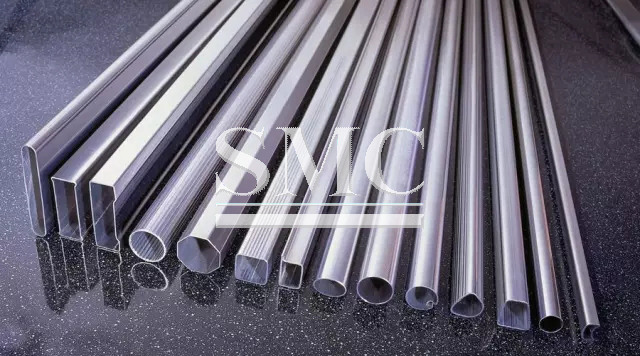
- Company overview The heart of SMC Vision & Philsophy Partnership Certifications Company culture
- Our service Design and Engineering Maintenance and Service Examine Production Line Upgrade and Transformation Storage and Logistics Processing, Trading and Distributor
- Management Our history Global responsibility Info Center
- Procurement center Internship
- Metal Steel Products Stainless Steel Products Aluminum Products Copper Products Galvanized Steel and PPGI Special Alloy Building Material
- Containers ISO Standard Container Equipment Container Storage Container Refrigerated/Reefer Container Offshore Container Container House Tank Container Container Fittings Container Trailer
- Gas Cylinder & Fire Extinguisher Cryogenic Liquid Cylinder Oxygen Gas Cylinder Storage Tank CNG Gas Cylinder LPG Gas Cylinder Hydrogen Gas Cylinder Nitrogen Gas Cylinder Industry Gas Cylinder Fire Extinguisher
- Metal Machinery Forming Machine Cutting Machine Processing Machine Bending Machine Block Machine Other Machinery Motor Spare Parts
- Mechanical Products Miscellany Mooring Equipment Marine Equipment Vehicle Industry Pressure Vessel Conveyor Belt Laser Equipment Bearing
- Electrical System Power Distribution Automation Electrical Cable Solar Power System Electric Protection System Transformer Production Line Lighting System
- Project Plastic Pipes and Pipe Fittings Fiberglass Reinforced Plastic Pontoon System
Benefits of Using Aluminum Piping for Compressed Systems
Lowering Installation Costs
When it comes to a compressed air system, more time is needed to install the system when using steel pipe compared to installing a system using other materials.
One factor behind this is that steel pipe needs to be threaded to join pipes and install the proper fittings.
Properly threading steel pipe requires special threading equipment and skilled workers to operate it.
Not only do these workers cost more than unskilled workers, it also drives up installation costs.
Also, threading pipes is dirty work requiring cutting fluids to get a good thread, and that must be cleaned from the pipe before you can start using the system.
Threading also creates a lot debris.
Modifying and maintaining a compressed air system made with steel pipe is more challenging than modifying and maintaining systems built from other materials.
One reason for this is that steep pipe is much heavier than other materials. Steel pipe also so heavy, so it requires more labor to handle the piping
while making modifications than it would to make modifications to a system made with other piping materials.
Minimizing System Leaks
Another problem with threaded connections is that they will inevitably leak. It has been estimated that eight to ten percent of the compressed air in a system will leak
through connections, causing compressors to run harder and longer. This can drive up utility costs as a result.

Aluminum Piping Doesn’t Corrode
A common issue with using steel pipe is that moisture inside the system will cause pipes to rust from the inside out. Even if the compressed air system has a moisture trap,
there will be some moisture in the system and corrosion will occur. Even galvanized steel pipe will corrode, as not all pipes are galvanized both inside and out.
Corrosion causes several issues, beginning with air flow restricted by a rough inner surface caked with deposits caused by corrosion build up. In addition,
loose scale deposits collect over time and create pressure drops, making the air compressor work harder to maintain the pressure of the system. In extreme scenarios,
loose scale can completely clog a line or damage equipment connected to a line.
Of course, corrosion and loose scale affects air quality, making it unsuitable for applications that require clean air.
Aluminum Outperforms the Copper Alternative
Another solution for compressed air systems is copper. Copper is attractive because it doesn’t corrode as much as steel pipe. It can corrode, but it doesn’t have pipe scaling like steel pipe,
which means that a copper system will have fewer air flow problems and air cleanliness problems than steel pipe. However, it can still experience flow restriction over time.
A copper solution still comes with its own set of disadvantages, though. One of the biggest being the cost of copper material itself.
The price of copper increased by 20 percent in October of 2011, and subsequently, so did the price of copper pie. Prices have since dropped,
but the fact remains that copper pipe continues to be considerably more expensive than steel pipe.
Another downside is that fitting must be soldered, and this causes its own set of issues. Soldering requires an open flame,
which makes this a safety issue in some environments. Solder also requires some skill to accomplish, an increasing problem in an era when skilled labor is becoming harder to find.
If a joint is not properly soldered, it will leak, and leaks increase energy costs.Lastly, not all types of copper piping are suitable for use with high air pressures.
So, if you are planning to use copper, you need to ensure that you choose a pipe that can handle the pressure.
Shanghai Metal Corporation is a trusted aluminum alloy, aluminum foil price, stainless steel price and stainless steel manufacturer, kinds of stainless steel in china.
